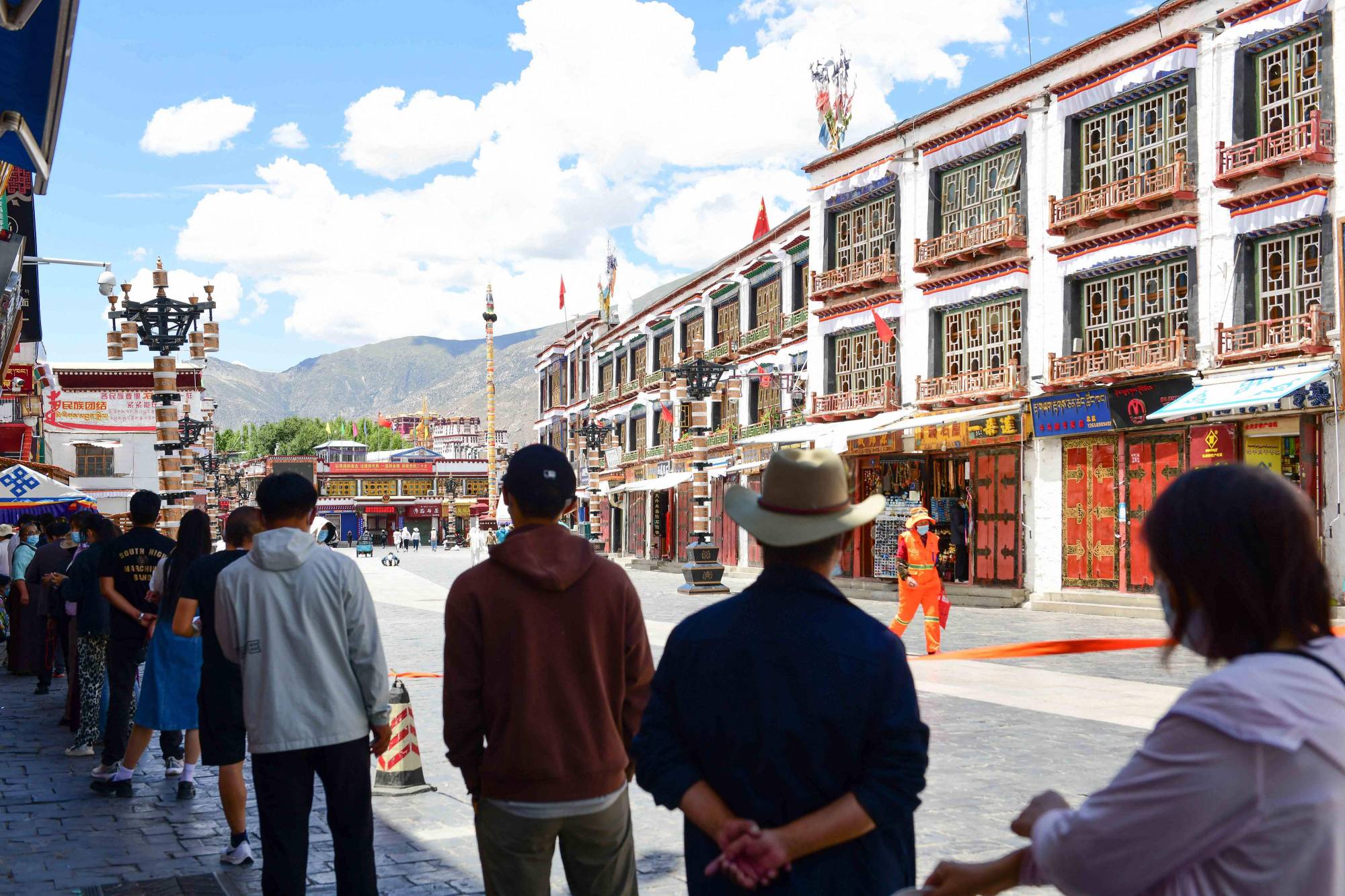To combat fresh outbreaks of COVID-19 in outlying areas like Xinjiang and Tibet, Chinese authorities are drawing on a security apparatus previously used to quell dissent against authorities in Beijing.
Broad surveillance measures used over the years against Tibetan Buddhists and mainly Muslim Uyghurs, both minority groups in China, are helping enforce lockdown rules among people long at risk of arbitrary detention. That has helped ensure there’s no public displays of anger like those seen earlier this year during the monthslong lockdown in the financial hub of Shanghai.
"It’s ironic but very convenient for the CCP that it first constructed Uyghur ethno-national identity as a religious extremist ‘thought virus,’ took draconian steps to eradicate it and then a real virus came along for which similar techniques were useful,” said James Millward, professor of history at Georgetown University, referring to the Chinese Communist Party.



















With your current subscription plan you can comment on stories. However, before writing your first comment, please create a display name in the Profile section of your subscriber account page.